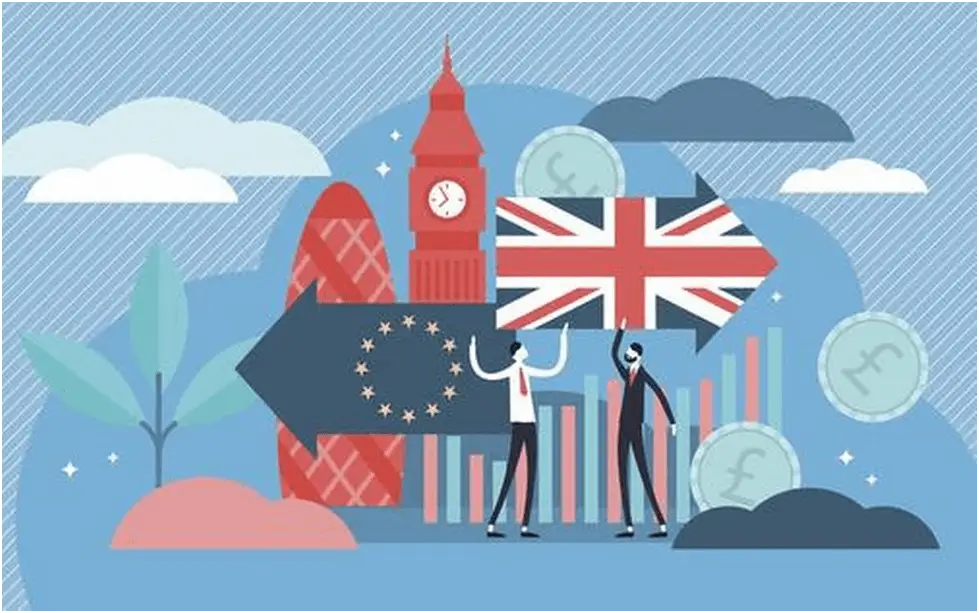Brexit Transition Period Begins: What’s the Impact on Intellectual Property (IP)?
After almost five years of intense debate, Brexit—the United Kingdom’s withdrawal from the European Union—is finally a reality. On Jan. 31, 2020, the UK departed the EU to mark the beginning of the transition period before Brexit becomes a done deal on Dec. 31, 2020.
So, what does the UK’s historic exit, Brexit, from the EU mean for those operating in the online retail space and their Intellectual Property? Previously, GreyScout provided the ins and outs of copyright law in the online world and the protection of Intellectual Property (IP). Brexit will undoubtedly impact IP owners in the UK and EU, and they should take the necessary steps to ensure they’re ready for the UK’s withdrawal. While the Withdrawal Agreement between the UK and the EU has been ratified, the transition period between now and Dec. 31 gives those operating in e-commerce marketplaces significant time to prepare to protect their IP.
Let’s examine how Brexit will impact intellectual property rights and how online retailers can prepare for the UK’s exit from the EU accordingly.
What happens between now and the transition period?
The UK government has ensured that all existing EU trademarks (EUTMs) and European Community Designs (RCDs)—which enforce IP rights within EU member states—will remain relevant and protected in the UK until the Dec. 31 deadline. Those with pending applications for EUTMs and RCDs will be granted nine months following the transition period to apply for equivalent trademarks in the post-Brexit UK.
What happens to my IP after Dec. 31, 2020?
Once the transition period ends, those with existing EUTM and RCD registrations will automatically be given an equivalent UK-registered trademark or registered design. This is good news for EU IP owners, who will not have to file their registrations again or pay additional fees. Moreover, the International Trademark and International Design registrations will follow the same process as EUTMs. They, too, will be automatically brought over to the UK Registry. At this stage, online retailers and brand owners will need to closely examine their holdings and determine if it’s necessary to retain the rights of both their EUTMs and RCDs along with the automatically registered UK equivalent upon renewal.
Here’s a look at some items that UK business owners will need to pay close attention to during and after the transition period:
.eu domains
One of Brexit’s impacts on UK-based businesses is that they can no longer register or renew .eu domains following the Dec. 31, 2020, deadline.
International rights
As EUTMs will be automatically brought over to the UK, so will international trade Mark and International Design Registrations. As laid out in the Withdrawl Agreement, international registrations for trademarks and designs are ensured protection in the UK following the Brexit deadline.
Proof of use
Vendors should review their EUTM and RCD holdings to determine if they will need to be used in the UK. Those looking to extend their intellectual property rights beyond the 27 European Union countries remaining in the EU post-Brexit may wish to consider expanding their use.
Unregistered design rights
The government plans to establish the Supplementary Unregistered Design Right as part of the UK’s exit plan. This ensures that Unregistered Community Design Rights (UCDR) remain protected. Like everything else, IP holders should take stock of their UCDR portfolio and take action as necessary.
Exhaustion of rights
Rights exhausted in the UK and the remaining EU27 will remain so in both regions.
Patents
Those in the UK can continue to apply for a European patent through the Intellectual Property Office or directly with the European Patent Office (EPO). This provides patent protection throughout Europe in more than 30 countries.
Security interests
UK businesses and IP holders may need to record their licenses and security interest against the EUTM registration.
Supplementary Protection Certificates (SPCs)
Throughout the transition period, the application process for SPCs remained unimpacted for patented pharmaceutical and plant protection products. Following the transition period. Copyrights
As previously highlighted by GreyScout, protecting a photograph, video, audio recording, or any other copyright-protected work automatically applies upon creation. You can register your copyright in the country of origin. However, it is not necessary. This does not change on Brexit day. Following the deadline, reciprocal protection of copyrighted works in the UK and EU is assured similarly.
How should online business owners in the UK and EU prepare?
The Withdrawal Agreement seeks to cover all bases regarding the UK’s exit from the EU. While much will be done automatically—as highlighted above—e-commerce businesses impacted by Brexit should thoroughly audit their IP to ensure their existing protections remain intact. A thorough assessment and audit of IP to identify and evaluate your online business’s IP assets will help determine how Brexit will impact them. This will ensure nothing falls between the cracks on exit day.

